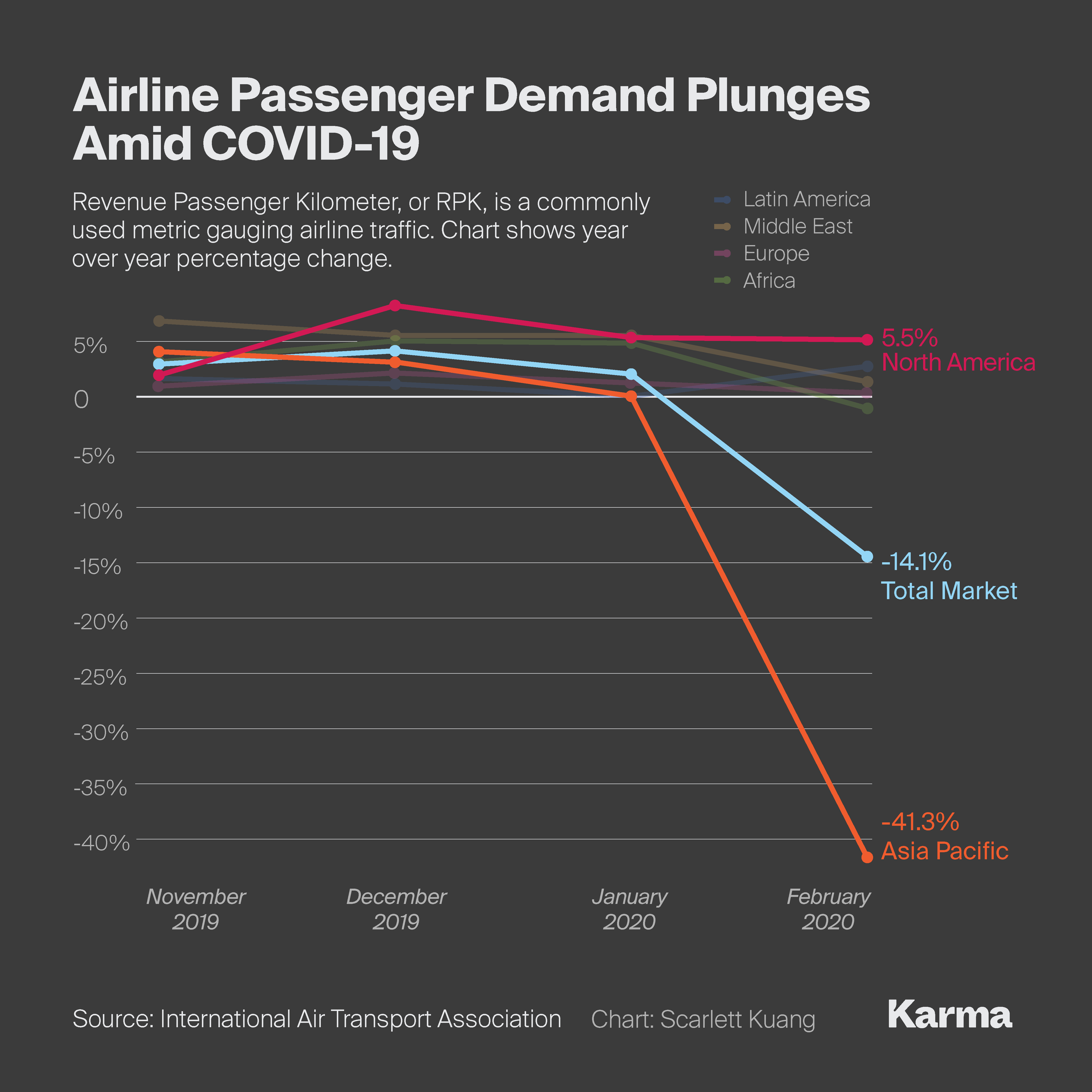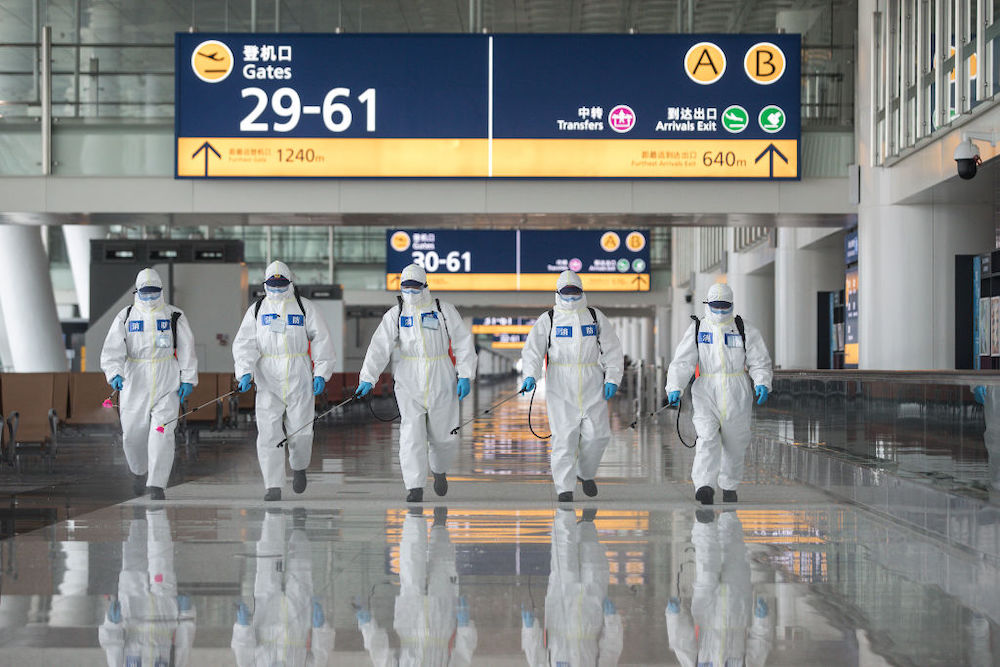- In aviation’s “darkest hour,” governments must take steps to protect the planet, climate advocates warn.
- Failing to include climate protections in coronavirus bailout measures will make the climate crisis worse when it’s over, they say
- Global aviation will be responsible for 3.5% of global-energy-related carbon dioxide emissions by 2030, compared with 2.5% currently, the International Energy Agency said last year.
The coronavirus may turn the skies less friendly.
One of the few silver linings to the global pandemic has been a reduction in fossil-fuel emissions because of a halt in air travel as country after country goes into lockdown. But climate advocates are warning that when the crisis is over, things could be worse than they were before if governments fail to act now.
That’s because governments around the world are contemplating multibillion-dollar bailouts for the airline industry. Miguel Arias Cañete, the former European commissioner for climate action and energy and one of the pioneers of the 2016 Paris climate accord, told The Guardian that lawmakers must use their leverage to add some climate-related strings, something that the industry is fighting tooth and nail.
“It must be conditional, otherwise when we recover, we will see the same or higher levels of carbon dioxide,” he told the newspaper. He prefers a carbon tax or emissions-trading system. Democrats in the U.S. House of Representatives tried to do something similar when debating a $2 trillion stimulus package late last month: They wanted the rescue package to require airlines to cut emissions to 50% below 2005 levels by 2050, something that the industry has already voluntarily committed to. But it didn’t make the final measure.
The world’s airlines face “aviation’s darkest hour,” Alexandre de Juniac, director general and CEO of the International Air Transport Association, or IATA, the official trade organization of the world’s airlines, said in a statement last week. He urged governments around the world to provide relief measures during “the biggest crisis that the industry has ever faced.” IATA estimates that the world’s airlines will burn through $61 billion of their cash reserves in the second quarter of this year alone, a whopping 68% decline from the year earlier.

But the climate stakes were dire before the coronavirus. The International Energy Agency forecast last year that aviation will be responsible for 3.5% of global-energy-related carbon dioxide emissions by 2030, compared with 2.5% currently. And aviation was forecast to account for 15% of global oil demand by 2030.
“This expansion underscores the need for the aviation industry to tackle its carbon emissions,” IEA energy analyst Pharoah le Feuvre wrote. “For now, liquid hydrocarbon fuels like jet fuel remain the only means of powering commercial air travel. Therefore, along with a sustained improvement in energy efficiency, Sustainable Aviation Fuel (SAF) such as aviation biofuels are key to reducing aviation’s carbon emissions.”
The Sierra Club was one of the groups arguing last month that the short-term stimulus measure include climate accountability for the airlines, and it wants future stimulus measures to consider the planet, as well:
“Any medium-term stimulus must include a robust package of clean energy tax incentives. It should also plant the seeds of a regenerative economy to sustain us over the long term — one that will create millions of good, family-sustaining jobs in public transit, restoring wetlands and forests, regenerative agriculture led by family farmers, and much else,” according to a statement.
Photo by Getty Images






















